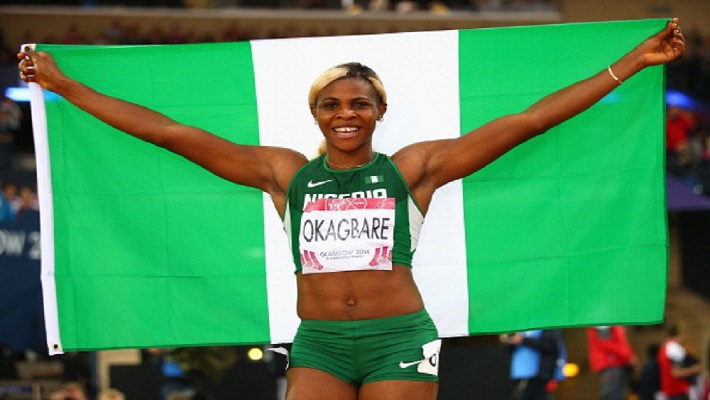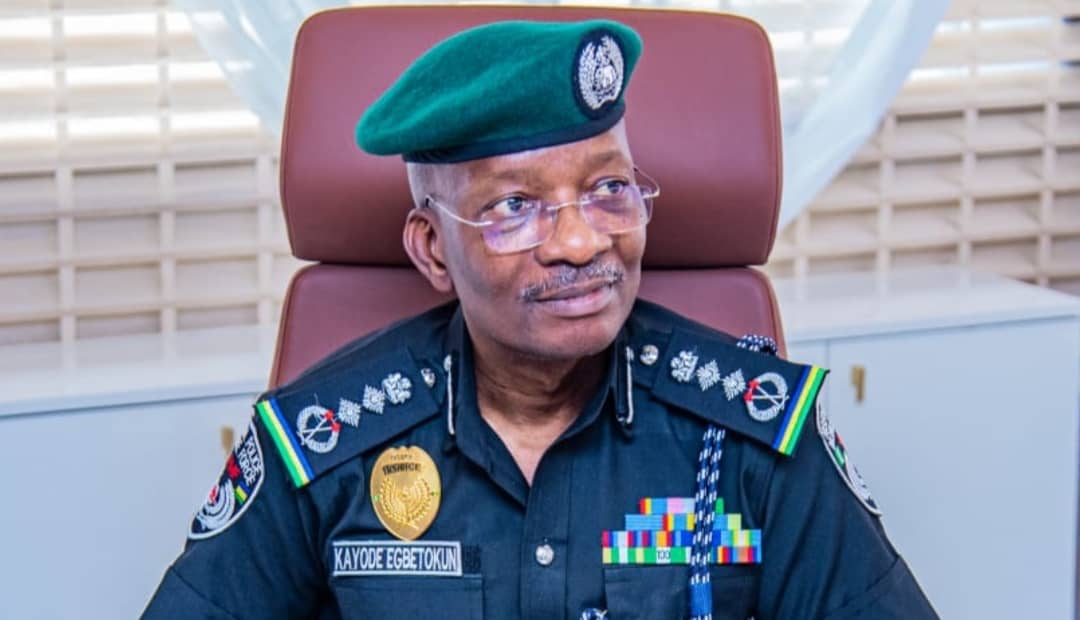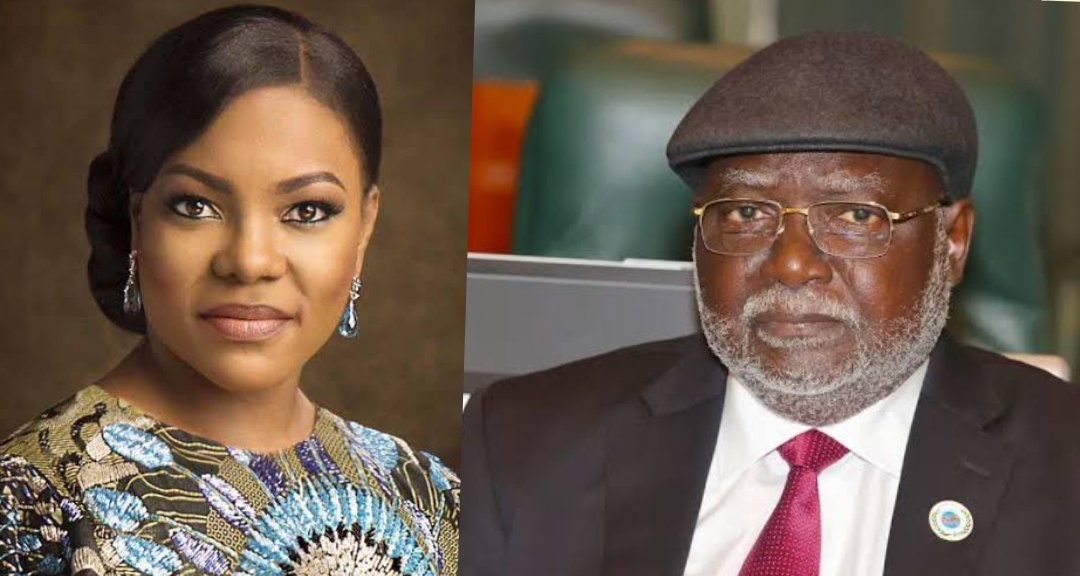Independence Day: 60 good things about Nigeria in 60 years

Nigeria marks its diamond jubilee today. Even though it is coming at a time of palpable strain around socio-economic, ethnic and political lines, the message in the official independence logo says “60 years together.”
Truly, the nation has been together as one entity since independence from British colonial lords, holding firm despite the tension pulling at it from different angles.
The ills which the founding fathers confronted still assail the country today, under President Muhammadu Buhari.
However, Nigeria has been widely hailed as home to resilient people, has endured many trying times and survived. It could be said that Nigeria has made progress in some aspects, especially outside of government influence.
As the country clocks 60, we take a trip down memory lane to remind ourselves how far we have come.
HISTORY
1960; Nigeria’s first constitution as a sovereign state came into force immediately upon independence. Under this constitution, Nigeria retained Queen Elizabeth II as titular head of state.
1963; Independent Nigeria’s second constitution established the country as a federal republic. It came into force on 1st of October, 1963 (Nigeria’s third anniversary as an independent nation). The 1963 constitution, which was based on the Westminster system, continued in operation until a military coup in 1966 overthrew Nigeria’s democratic institutions.
1979; The 1979 constitution, which brought in the Second Republic, abandoned the Westminster system in favor of an American-style presidential system, with a direct election, directly-elected. To avoid the pitfalls of the First Republic, the constitution mandated that political parties and Federal Executive Council (Nigeria cabinet) positions reflect the “federal character” of the nation: political parties were required to be registered in at least two-thirds of the States of Nigeria or states, and each state had to have at least one member of the cabinet from it.
1999; The 1999 constitution restored democratic rule to Nigeria and remains in force today. In January 2011, two amendments of the 1999 constitution were signed by President Olusegun Obasanjo, the first modifications since the document came into use in 1999.
HUMAN RIGHTS
On the front of human rights and its protection, the 1999 constitution enshrines the rights of its citizens to be protected at all costs.
1984; Nigeria signed into the UN treaty on “Convention on the Elimination of All Forms of Discrimination against Women” signing the “Optional Protocol to the Convention on the Elimination of All Forms of Discrimination against Women “by the UN in 2000.
1988; Nigeria signed into the UN treaty on “Convention against Torture and Other Cruel, Inhuman or Degrading Treatment or Punishment.”
1991; The Child Rights Act was first brought forward and signed into national law in 2003. This Act provides that in all matters involving a child, which may come before a court for adjudication; the best interest of the child is the paramount consideration. Among other factors to protect children from abuses and discrimination, Section 21 and 23 of the Act made it illegal to marry off a child below the age of 18.
1995; The Nigerian Center for Human Rights and Development was founded to promote democracy and enforcement of rights.
2000; Nigeria signed into several treaties by the UN including the “Optional Protocol to the Convention on the Rights of the Child on the Involvement of Children in Armed Conflict” and the “Optional Protocol to the Convention on the Rights of the Child on the Sale of Children, Child Prostitution and Child Pornography.”
2007; Nigeria signed the UN treaty on “Convention on the Rights of Persons with Disabilities.” and the “Optional Protocol to the Convention on the Rights of Persons with Disabilities.”
In the same year, Umaru Yar’Adua succeeds Olusegun Obasanjo in the presidential election — it is the first time power is transferred between two civilians in the history of the country.

2009: Nigeria signed the UN treaty on “International Convention for the Protection of All Persons from Enforced Disappearance.”
2015: On 25 May, President Goodluck Jonathan passed the Violence against Persons Prohibition (VAPP) bill into law. The law prohibits female circumcision or genital mutilation, forceful ejection from home and harmful widowhood practices. It prohibits abandonment of spouse, children and other dependents without sustenance, battery and harmful traditional practices. This came after the Senate had on May 5 in the same year, passed the Violence against Persons (Prohibition) Act 2015 into law.

2019: President Muhammadu Buhari signs a law prohibiting violence against persons with disability. The law also requires that public and private institutions should make their offices friendly to persons with disabilities.
ARTS/ENTERTAINMENT
The second-largest export by the Giant of Africa is its people and their talents.
In the arts, Nigeria’s achievement is stellar, with its laurels resting on the efforts of her citizens. Nigerians have made their mark in literature, sport, music and motion picture across the globe.
1977; Nigeria hosted FESTAC, also known as the Second World Black and African Festival of Arts and Culture.
1984; King Sunny Ade was nominated for a Grammy.
1986; Wole Soyinka was awarded the Nobel Prize for Literature, becoming the first African laureate.

Sade Adu also made history as the first Nigerian singer to have won a Grammy. She won her first Grammy in 1986 in the best new artist category.
1992; Chinua Achebe became the first living writer to be represented in the Everyman’s Library collection published by Alfred A. Knopf.
1994; Sade Adu won the Best R&B Performance by a duo or group with vocals in 1994 for the song, “No Ordinary Love.”
1998; Oluchi Onweagba emerged the winner of M-Net’s Face of Africa competition.
In the same year, Ogaga Ifowodo was awarded the PEN/Barbara Goldsmith Freedom to Write Award, given to writers “anywhere in the world who have fought courageously in the face of adversity for the right to freedom of expression.
2001; Miss Agbani Darego won the title of Miss World.
2002; Sade Adu won another Grammy in 2002 in the category of the Best Pop Vocal Album, with the song “Lovers Rock.”
2003; Enyimba football club of Aba won the CAF champions league. In the same year, Femi Kuti was nominated for his album “Fight To Win.”
2006; the Nigerian Film industry realized N16 billion from the record of 50 indigenous movies. The figure represented close to 30 per cent of the N3.5 billion generated from 28 cinemas across the country including movies from Hollywood of America, Bollywood of India, Gollywood of Ghana and other countries.
2009; Sikiru Adepoju won the Best Contemporary World Music Album.
2010; Bruce Onobrakpeya was honored with the Pope John Paul II award for painting the life of Saint Paul, the Fellowship of Asele Institute award, the Sadam Hussein award, the Solidra Circle award, Fulbright Exchange Scholar award and the Federal Government of Nigeria’s prestigious Nigerian Creativity Award.
2011; Sade Adu won the Best R&B Performance by a group with vocals for “Soldier of Love.”
2012; Femi Kuti was nominated under the World Music Album category for ‘Africa for Africa’.

2014; Femi Kuti was nominated for Best World Music Award over his work, No place for my Dream.
2015; Wizkid and Chimamanda Ngozi Adichie were nominated for Album of the Year, for their contributions to Beyoncé Knowles “Beyoncé” and Drakes “Views”
2018; Seun Kuti was nominated for his work ‘Black Times’ in the same year as Timaya was nominated for Best Reggae Album.
2019; Nigeria submitted a film for the Academy Award for Best International Feature Film (Lionheart), for the first time. However, on 4 November 2019, the Academy disqualified Nigeria’s entry, as the majority of the film’s dialogue is in English
2020; Burna Boy was nominated for a Grammy under the category of World Music Album for his “African Giant.”
SPORT
1964; Nigeria’s first Olympic medalist was the Light Middleweight Boxer Nojim Maiyegun who won bronze at the Tokyo Games. It was the first ever medal won by the West African nation in an Olympic event as the boxer became the first medalist since Team Nigeria’s first participation at the 1952 summer Olympics in Helsinki, Finland.
1985; Nigeria won the U-17 World Cup. Captained by former international Nduka Ugbade, the maiden edition of the cadet World Cup was played in the Far East nation, China and won by Nigeria.
Nigeria hosted and won the Nation Cup tournament in 1991, 1998, 2002 and 2006.
1996; Nigeria is the first African country who won the gold medal in the men’s football tournament at the Atlanta Olympic on August 3.
1993: The fifth edition of the FIFA U-17 World Cup was another recognizable event where the Nigerian contingents made the country proud in Japan.
1994: The whole nation was thrown into frenzy when the Super Eagles ensured her first qualification to the World Cup in the United States after securing the all-important draw away to Algeria. In the same year, after several attempts in winning another Nations Cup title, the 14-year wait was finally over as the Super Eagles won the trophy in Tunisia.
1998: Nigeria, first African team to qualify to the round of 16 for the 2nd time in its history of participations
2007: After winning the 2007 U-17 competition play hosted by South Korea, Nigeria became the most successful team at teenage level.
2009: Following Nigeria’s pedigree at cadet level, FIFA handed the hosting rights to the football governing of Nigeria and the tournament was successfully staged.
2013: New Super Eagles sensation, Kelechi Iheanacho and co outclassed their Mexican counterparts by 3-0 to win the trophy for a record, fourth time, in the United Arab Emirates at the FIFA U-17 World Cup. In the same year, Late Stephen Keshi resurrected the Super Eagles to clinch the trophy in the 2013 AFCON hosted by South Africa.
2014: Nigeria, first African team to qualify to the round of 16 for the 3rd time in its history of participations
2015: One of Nigeria’s most successful track queens Blessing Okagbare wrote her name in the Guinness Book of Records for the most appearances in the Diamond League meet in 2015.

The Golden Eaglets successfully defended the title they won in UAE and consolidated it with another heroic feat in Chile at the 2015 FIFA U-17 World Cup.
For the first time in D’Tigers history they won the AfroBasket tournament becoming Africa champions for the first time after failing on several attempts in Angola.
The Super Falcons of Nigeria superiority and 11th AWCON title: The female national team is the best African side in the tournament in history bagging the Nations Cup 11 times, a feat far better than any other African side.
2017; D’Tigress won back-to-back titles in 2017 and 2019 FIBA Women’s Afrobasket championships: The Nigerian team defeated Senegal 60-55 to win the 2019 women’s Afrobasket title they won two years ago.
HEALTHCARE
1988; Former Minister of Health Prof. Olikoye Ransome Kuti enabled official acceptance of Policy document on Primary Health Care by FG
1992; Establishment of the National Primary Healthcare Development Agency (NPHCDA) to support the Primary Healthcare level of care.
2014; Nigeria’s National Health Act 2014 (NHA 2014) was signed into law on October 31.
In the same year, Nigeria was declared Ebola virus free, as Late Ameyo Adadevoh curbed the wider spread of the Ebola virus in Nigeria by placing the patient zero, Patrick Sawyer, in quarantine despite pressure from the Liberian government, losing her life in the process.

2017; Nigeria’s president, Muhammadu Buhari signed into law the country’s Compulsory Treatment and Care for Victims of Gunshot Act, 2017.
2020: Nigeria is declared polio free by the World Health Organisation.
1973: Creation of the NYSC by Yakubu Gowon to encourage nation building and development of the country.
1976: Operation Feed the Nation was a national agricultural extension and mobilization program instituted by the military government of Nigeria as a measure to achieve self sufficiency in food crop production and inspire a new generation to return to farming.
1990: Third Mainland Bridge was built, making it the longest bridge in Africa until 1996.
In the same year, Nigeria spearheaded the founding of ECOMOG which oversaw military assistance in Liberia and Sierra Leone.
2001: Global System of Mobile (GSM) was introduced into the country

That was in the third year of former President Olusegun Obasanjo’s first term.
2016: National Collateral Registry (NCR) or the Movable Assets Registry was established by the Central Bank of Nigeria, in May 2016. The NCR allows small businesses to get access to loans using movable assets – machinery, livestock, inventory – as collateral.
2019: President Buhari launched Nigeria’s Micro Pension Scheme – which allows self-employed persons and persons working in organisations with less than three employees to save for the provision of pension at retirement or incapacitation.
In 2020, D’ Tigress became the only female African team to qualify for participation in the 2020 Summer Olympic Games.
In 2019, President Buhari signed into law the establishment of Police Trust Fund, which will significantly improve funding for the Nigeria Police Force.
2005; Nigeria launched the National Health Insurance Scheme. NHIS is to provide access to effective and affordable healthcare for all Nigerians
We have recently deactivated our website's comment provider in favour of other channels of distribution and commentary. We encourage you to join the conversation on our stories via our Facebook, Twitter and other social media pages.
More from Peoples Gazette

Politics
Katsina youths pledge to deliver over 2 million votes to Atiku
“Katsina State is Atiku’s political base because it is his second home.”

Heading 1
IGP Egbetokun says Nigeria not ‘mature’ for state police; wants NSCDC, FRSC merged with NPF
The IGP, represented by the Assistant Inspector General (DIG) of Police, Ben Okoro, said the NSCDC and the FRSC were duplications of the police.

World
Seven killed, many injured after race car rams into spectators in Sri Lanka
At least seven people were killed and 21 others injured after a race car rammed into spectators at a motorsports event in Sri Lanka on Sunday.

Heading 1
INEC releases final list of candidates for Edo governorship election
“With the publication of the final list of candidates for the Edo State governorship election, the next activity is electionering campaign.”

Showbiz
Mary J. Blige, Cher, Ozzy Osbourne, others selected for Rock and Roll Hall of Fame induction
Blige, the “Queen of Hip-Hop Soul,” stands out as the first female solo artiste to be inducted this year.

Health
Expert advocates improved malaria data, funding
Mr Mokuolu also emphasised the need to strengthen the culture of diagnostic testing before the treatment of malaria to document true cases.

Hot news Home top
Nyesom Wike’s wife Eberechi promoted to Appeal Court as Ariwoola approves 22 new judges
Of the 89 judges nominated for promotion following the retirement of some senior jurists, only 22 judges were selected to fill available positions.








